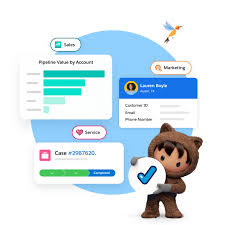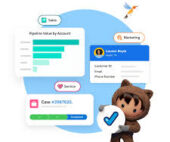Challenges of EHR Implementation and How to Overcome Them
Implementing an electronic health record (EHR) system is a monumental task, with complexities that require careful planning and execution. Common challenges—such as resistance to change, data migration hurdles, cost overruns, cybersecurity risks, and patient engagement issues—can impede progress. However, understanding these obstacles and applying targeted strategies can pave the way for a smooth transition.
1. Resistance to Change
The adoption of a new EHR system affects nearly every workflow in a healthcare organization, often sparking resistance among staff. Fear of change and attachment to familiar processes can hinder implementation.
Solution:
- Engage Staff Early: Involve staff in the EHR decision-making process to ensure the system aligns with their needs.
- Provide Education and Training: Address concerns by offering targeted education, ongoing training, and specialty-specific modules.
- Foster Collaboration: Conduct regular meetings or staff huddles to keep teams informed and allow them to share feedback.
- Support Transition: Reinforce the value of each team member and provide additional support to those struggling with the change.
2. Data Migration Issues
Accurate migration of patient health records is critical, yet transitioning data between systems often presents technical and logistical challenges.
Solution:
- Negotiate Vendor Terms: Establish clear data transfer obligations with EHR vendors during contract negotiations to prevent complications.
- Employ Experts: Utilize consultants or specialists for data mapping and cleaning to ensure accuracy.
- Prioritize Active Data: Limit migration to active patient records while archiving inactive data as PDFs, adhering to legal retention requirements.
3. Cost Overruns
EHR implementation costs can quickly escalate, extending beyond software and hardware expenses to include consulting fees, training, and operational adjustments.
Solution:
- Plan Strategically: Create detailed budgets that account for initial and ongoing expenses, such as maintaining legacy systems during phased rollouts.
- Optimize Resources: Identify internal personnel who can reduce reliance on costly external consultants.
- Evaluate Rollout Methods: Consider a “big bang” deployment to minimize legacy system maintenance costs, or use a phased approach for testing, while preparing for dual-system expenses.
4. Heightened Cybersecurity Risks
Transitioning sensitive patient data between EHR systems increases vulnerability to breaches, ransomware, and other cybersecurity threats.
Solution:
- Establish a Cybersecurity Task Force: Focus on both current and emerging threats, ensuring compliance with regulations.
- Conduct Regular Testing: Use ethical hackers to identify and address vulnerabilities.
- Invest in IT Security: Allocate resources for IT personnel, staff training, and continuous data backups.
5. Patient Engagement Challenges
Patients are often overlooked during EHR transitions, leading to confusion about changes in medication requests, appointment scheduling, and other interactions.
Solution:
- Communicate Early and Often: Keep patients informed about the transition and its benefits through multiple channels.
- Encourage Portal Use: Educate patients on using new portals, emphasizing features like secure messaging and access to clinical notes.
- Provide Support: Offer assistance to help patients navigate the new system and address any concerns.
Conclusion
EHR implementation is undoubtedly challenging, but with proactive strategies, healthcare organizations can navigate these complexities effectively. By addressing resistance to change, ensuring seamless data migration, managing costs, bolstering cybersecurity, and engaging patients, organizations can achieve a successful EHR transition that enhances workflows, safeguards data, and improves patient outcomes.












